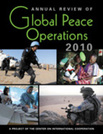Sort by: Author | Title | Publication Year
BOOKS
Just Give Money to the Poor: The Development Revolution from the Global SouthJoseph Hanlon, Armando Barrientos, and David Hulme Amid all the complicated economic theories about the causes and solutions to poverty, one idea is so basic that it seems radical: bypass governments and NGOs, provide direct cash transfers, and let the poor decide how to use their money. Discussing this alternative, looking at both problems and successes and stressing that cash transfers are neither charity nor a safety net, the authors provide a More > |  |
Anticorruption in the Health Sector: Strategies for Transparency and AccountabilityTaryn Vian, William D. Savedoff, and Harald Mathisen, editors A brief, readable field guide, Anticorruption in the Health Sector brings practical experience to bear on anticorruption approaches tailored specifically to health. The contributors, all skilled practitioners, address the consequences of different types of corruption and show how agencies can more effectively address these challenges as an integral part of their development work. Both practitioner More > |  |
Brain Injury Survivors: Narratives of Rehabilitation and HealingLaura S. Lorenz Although millions of people are affected each year by brain injuries, what it is like to live with these injuries is often misunderstood. Laura Lorenz delves into the experience of acquired brain injury (ABI) survivors to reveal how they make sense of their changed circumstances—and how social policies and medical expectations can enhance, or detract from, their quality of life.
As she More > |  |
Islam and Christianity in the Horn of Africa: Somalia, Ethiopia, SudanHaggai Erlich Can Christianity and Islam coexist? Or are Muslims and Christians destined to delegitimize and even demonize each other? Tracing the modern history of the region where the two religions first met, and where they are engaged now in active confrontation, Haggai Erlich finds legacies of both tolerance and militancy.
Erlich's analysis of political, military, and diplomatic developments in the More > |  |
The Arab Gulf States: Beyond Oil and IslamSean Foley If petroleum buys political legitimacy in the Arab Gulf states, how can we explain the rise of dissent and calls for political reform despite sustained oil revenues? The answer, according to Sean Foley, lies in political, social, and economic dynamics that have been brewing beneath the surface for more than a decade—and that are slowly shifting the balance of political power.
While not More > |  |
Dilemmas of Democratic Consolidation: A Game-Theory ApproachJay Ulfelder Why have so many attempts at democracy in the past half-century failed? Confronting this much discussed question, Jay Ulfelder offers a novel explanation for the coups and rebellions that have toppled fledgling democratic regimes and that continue to threaten many new democracies today.
Ulfelder draws on an original dataset of 110 democratic failures spanning 1955–2007 and also presents More > |  |
The Police in War: Fighting Insurgency, Terrorism, and Violent CrimeDavid H. Bayley and Robert M. Perito Frustrated efforts in both Iraq and Afghanistan give urgency to the question of how to craft effective, humane, and legitimate security institutions in conflict-ridden states—and whether legitimate policing can in fact be developed in the midst of insurgency and terrorism. David H. Bayley and Robert M. Perito confront these questions head on.
Against the backdrop of failed US attempts to More > |  |
Annual Review of Global Peace Operations, 2010Center on International Cooperation Unique in its breadth of coverage, the Annual Review of Global Peace Operations presents the most detailed collection of data on peace operations—those launched by the UN, by regional organizations, by coalitions, and by individual nations—that is available. Features of the 2010 volume include: More > |  |
Civil Society and Peacebuilding: A Critical AssessmentThania Paffenholz, editor Responding to the burgeoning interest in the role of civil society in peace processes, this groundbreaking collaborative effort identifies the constructive functions of civil society in support of peacebuilding both during and in the aftermath of armed conflict. The authors also highlight the factors that support those functions and the obstacles to their fulfillment. A comprehensive analytical More > |  |
Decentralization in Uganda: Explaining Successes and Failures in Local GovernanceGina M.S. Lambright Why do some African local governments perform well, while others fail to deliver even the most basic services to their constituents? Gina Lambright finds answers to this question in her investigation of the factors that contribute to good—and those that result in ineffective—institutional performance at the district level in Uganda. Examining the conditions under which local More > |  |



